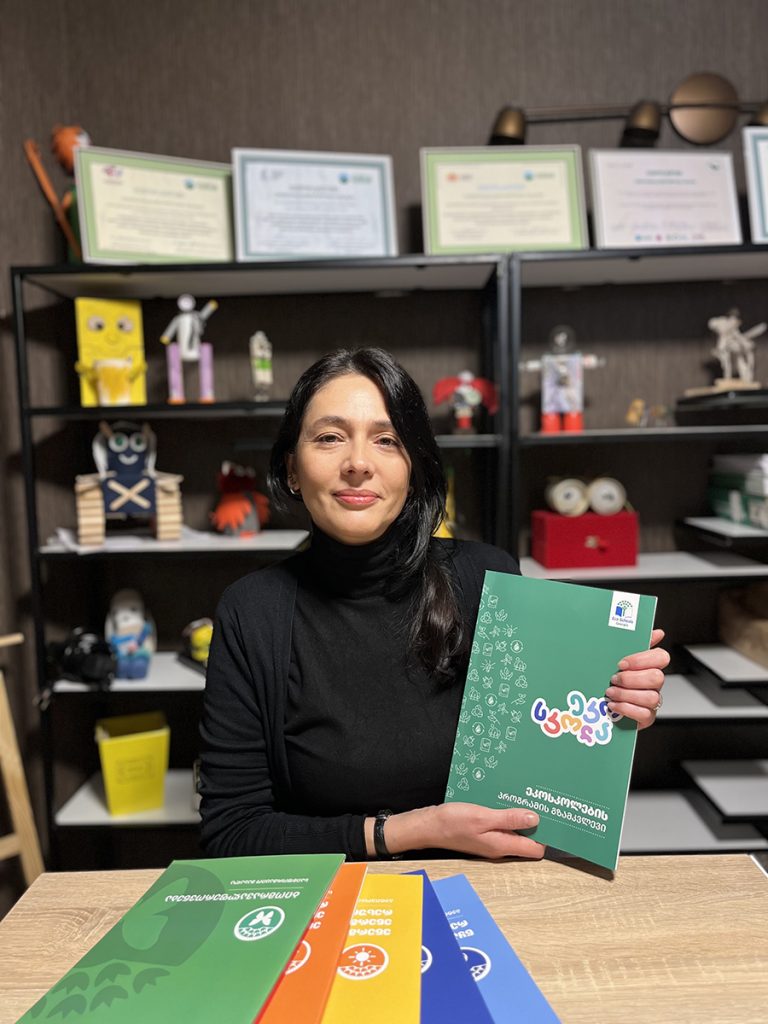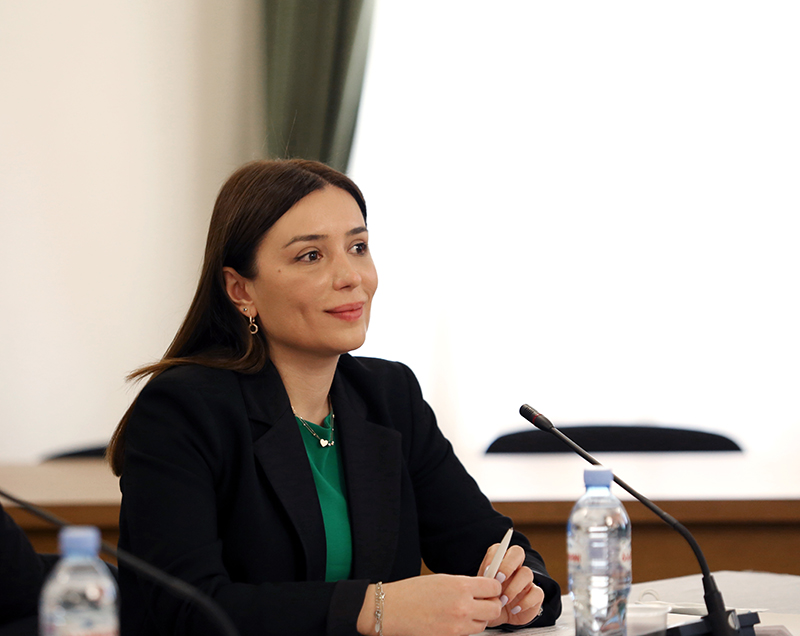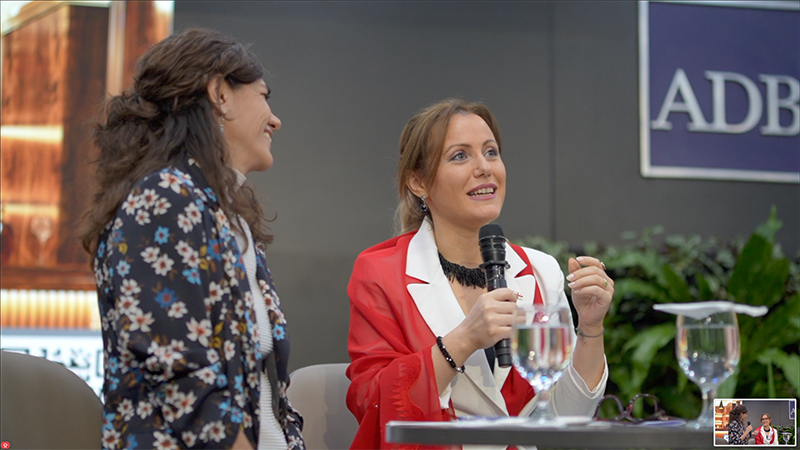Keep Georgia Tidy
Keep Georgia Tidy has been actively engaged in environmental activities for years. By uniting scientists, specialists working in various fields and volunteer environmentalists, the organization has implemented a number of projects related to the protection of nature in Georgia, ecology and ecosystem preservation, and awareness raisin. The project has also contributed to the development of modern and international methods to deal with waste and develop a green economy.
The project dates back to 2019, and its main goals are to reduce greenhouse gas emissions and environmental pollution, to facilitate sustainable environmental education and promote tenets of a circular economy. Project activities are focused on facilitating the implementation of sustainable environmental education and its integration in the general education system as well as raising public awareness.
Keep Georgia Tidy is implemented by a consortium of NGOs: Keep Georgia Tidy (KGT), Georgian Society of Nature Explorers “Orchis” and the Greens Movement of Georgia / Friends of the Earth – Georgia, in cooperation with local and Swedish partnering organizations – Keep Sweden Tidy (KST) and the Municipal Waste Management Organization – GÅ (Gästrike Återvinnare), the Ministry of Education and Science of Georgia, the Ministry of Environment Protection and Agriculture of Georgia, LEPL Environmental Information and Education Center with the financial support of the Government of Sweden.

Elene Loladze, project manager of the organization Keep Georgia Tidy
Your organization was established by uniting scientists, professionals of various fields, environmentalists and volunteers and it is actively engaged in environmental activities. Tell us about your activities, about the projects supported by the Government of Sweden.
Our organization Keep Georgia Tidy has been implementing a project by the same name together with local and Swedish partnering organizations working on environmental issues for several years. With the financial assistance of the Government of Sweden we developed a long-term, result-oriented action plan aimed at the implementation and development of environmentally sustainable approaches.
Our work area includes facilitating environmental education, raising awareness of and interest in ideas related to the tenets of circular economy, the development of better policy on waste management and other important environmental issues.
How important is raising public awareness of environmental issues, initiating eco-friendly projects and activities as well as improving the education of children and youth in the field of environment?
The projects we have implemented clearly indicate the importance of consistent and result-oriented approaches in raising environmental awareness. On the one hand, we create and spread analytical and educational materials and, on the other hand, we offer the public and stakeholders to become participants in discussions surrounding environmental issues to encourage various useful initiatives. We particularly emphasize promoting environmental education for the new generation. For this reason, our organization officially became an associated member of the Education Endowment Foundation (FEE) and we started working together on the program of eco-schools.
Eco-schools is a global-scale project which unites pupils and teachers around the single goal of environmental protection and promoting the development of sustainable schools. The program starts at school and by teaching the next generation it extends to the entire community.
The main goal of the project is to cover all the regions of Georgia and unite pupils and teachers caring for the environment. That is why one of the important stages of eco-schools is the establishment of a green award directed at the identification and encouragement of eco-friendly schools. This will promote the placement of Georgia on the global map of eco schools, presenting over 80 countries of the Education Endowment Foundation united in this program. The outcome of the Eco-Schools Project is very positively reflected on schools and pupils as well as the environment. By these approaches, pupils gain knowledge and join eco-friendly activities; their responsibility towards and care for the environment increase. Teachers become engaged in eco-friendly teaching, schools become more sustainable and their expenses and resources are saved.
Approximately 500 public schools from almost all regions are engaged in the Eco-Schools program today. In line with the introduction of the seven-stage system, we offer interesting environmental competitions and activities to our teachers and pupils for the entire year. One of the most recent activities was a competition to create a Georgian eco-alphabet. As part of the competition, pupils from various parts of Georgia worked on environmental definitions of 33 letters and their visual solutions.
At the same time, our organization has created a useful environmental resource ecolog.online – “Learn how to care” which is constantly being refined. Here environmental educational materials are united in a simple and easy-to-understand format.
We have recently finished work on a special animation which will focus on waste management issues. The audience for the animation is for children.
If we plan to achieve the Sustainable Development Goals by 2030, what is the role of multisector partnerships between the state, private and non-governmental sectors? What is the role of the private sector and its corporate responsibility in this respect? One of the main goals of our project is to encourage close relations between the state and the private sector and the joint initiation of interesting projects. By cooperating with them we work on environmental issues which are extremely important for the country and the community and help our country to easily join the efforts to meet the Sustainable Development Goals. As for collaboration with businesses, it is to be commended that working on environmental issues is becoming more and more important in their activities. We have a lot of interesting experiences in this respect when businesses cooperate with us in the education development process for the achievement of shared goals.

What would you recommend to the state and the private sector for the development and promotion of green economy?
The ecological problems existing globally which pose a number of threats to health and well-being demand significant changes and are reason enough to reexamine the existing economic system. These are the challenges that lay the foundation for the development of a green economy, which implies significant reduction of environmental risks and ecological losses which is an active working topic for our organization.
As you well know, Georgia signed the Association Agreement with the EU, which means higher engagement of Georgia in the EU strategies and programs. One of the important issues was facilitating the implementation of sustainable development and green economy, ensuring social, ecological and economic sustainability and required multilateral work. For the development of this issue, spreading appropriate knowledge and integrating this issue in educational activities are extremely important. We have observed that particularly beneficial are approaches where in line with transferring appropriate knowledge and skills, constant dialogue with the public is ongoing about the benefits of green economy development and how to use this opportunity. It is also important to study and share the international approaches and experience that have already been implemented by various countries of the world, reaching significant results. It is a combination of such approaches that can bring positive outcomes to people and the environment.




 Search
Search





